Are Business Cards Still Relevant in 2024?
Are business cards obsolete? The answer to this is quite open-ended since no, they’re not obsolete just yet because there are about 10 billion business cards printed every year in USA, but eventually, we see an evolution of how business cards work.
Despite this digital shift, traditional paper business cards remain prevalent among professionals and companies. But is this trend here to stay?
We don’t think so. Business cards are poised to evolve significantly. While paper business cards may not disappear entirely within the next decade, it's only a matter of time before digital alternatives become the norm.
Today, we’re looking at the overarching concept of printed business cards, and looking into the future to see how the evolution may take place.
1. Business Cards History and Traditional Role
Historically, the use of business cards dates back to as late as the 15th Century in China where the aristocracy would send a ‘Meishi’ (AKA a business card) which served as a formal announcement that royals were going to appear for a visit.
Fast forward to the 17th Century in France and Europe where the aristocracy and nobles adopted ‘calling cards’ to announce their intention to visit. Eventually, in the Industrial Revolution in the late 18th Century - 19th Century, the lower and middle classes started adopting ‘business cards’, particularly businessmen and merchants.
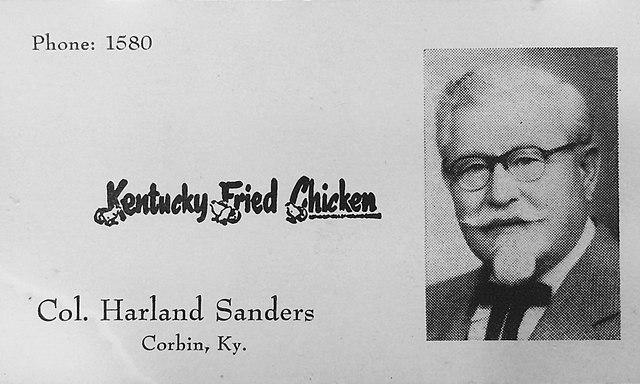
Taking a look back at the history of business cards, they’ve always been prevalent in some form or the other as ways to identify oneself while simultaneously providing a way for receiving parties to contact them.
In 2024, the core purpose of business cards remains, but we are rapidly approaching a time when simple contact information isn't enough. Today, people want comprehensive and instant information, reflecting the evolving nature of identification and communication in our digital age.
2. Who Needs a Business Card?
So, do people still use business cards? The answer is definitely a yes. Here’s a quick list of professions and industries that benefit and utilize business cards the most in their day-to-day operations and businesses:
- Business owners and entrepreneurs
- Sales representatives and marketing professionals
- Real estate agents
- Lawyers
- Financial advisors
- Journalists and media professionals
- Artists
- More...
These industries in particular rely heavily on business cards, especially when networking and professional connections are crucial to their business and act as indispensable tools for communication and self-promotion.
3. Advantages of Business Cards
Even with the prevalence of online networking platforms, in today’s digital age, physical business cards still offer a myriad of advantages. Here are some you may not have considered and why business cards can still be a useful tool in today’s competitive business landscape:
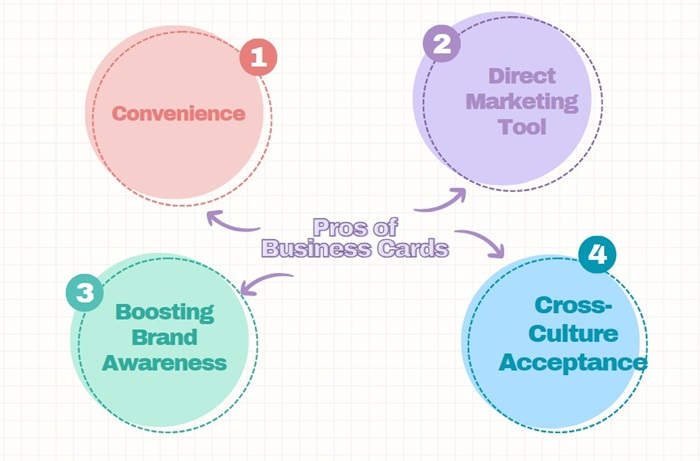
For Convenience
Another advantage of business cards is how convenient they are for both you and the receiver. If they ever require your services or need to contact you, all they have to do is pull out your business card. It’s clean and simple, something that’s often convoluted in today’s digital age.
Direct Marketing Tool
Every time a business card is handed out or exchanged, there is a chance to attract business partners and then result in successful orders. And according to a report by Adobe, the sales can increase 2.5% for every 2,000 business cards handing out.
Boosting Brand Awareness
Since printed business cards are just that, ‘physical’, they’re a great way to boost your brand’s awareness passively. People are always more willing to interact and liaise with someone they’ve met, and that’s one of the biggest advantages of traditional business cards.
More importantly, 39% of people would not do business with a company with cheap business cards, so business cards still play an important role in branding awareness and ensure to well design your business card.
Cross-Culture Acceptance
Business cards are always expected in networking events or conferences, and the appropriate number of business cards are 50-100 cards for a one-day event, which is a standard practice. And in international scenarios where there is a language barrier, business cards can serve as a non-verbal introduction of one's business.
4. Limitations and Considerations of Business Cards
Conversely, there are also quite a few significant limitations and considerations you need to take into account when using a classic paper business card:
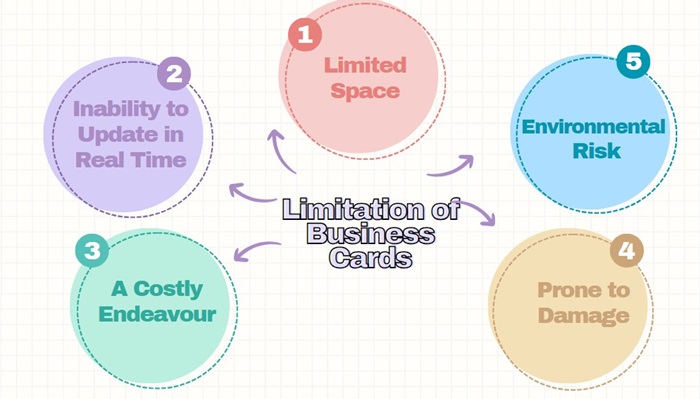
Limited Space
The biggest limitation of a physical business card is its physical dimensions. At most, people only include their name, designation, phone number, email, and maybe a URL link along with the company’s address. Besides that, you’re not going to be able to fit much else.
Inability to Update in Real Time
There’s also the risk that you or your brand may change contact details or branding, requiring you to update and print a new batch. However, the business cards handed out can't update the information in real-time.
A Costly Endeavour
Using physical business cards is going to cost you manpower to design the card and to print with high-quality materials at larger scales aren’t cheap.
Prone to Damage
88% of physical business cards are thrown away in less than a week, which makes handing out business cards less effective.
Environmental Risk
It’s said that there are 7 million trees are cut down to make paper printed business cards every year, which is a huge damage on the eco system.
5. Integrating Business Cards with Digital Strategies
While there are both good and bad sides to ‘business cards’ in a traditional sense, these issues can be overlooked depending on your strategy and how you integrate them with your business card.
Digital business card market size are expected to be valued at USD$ 611.1 million by 2030, which has a great potential in the future. Some advantages of using digital business cards:
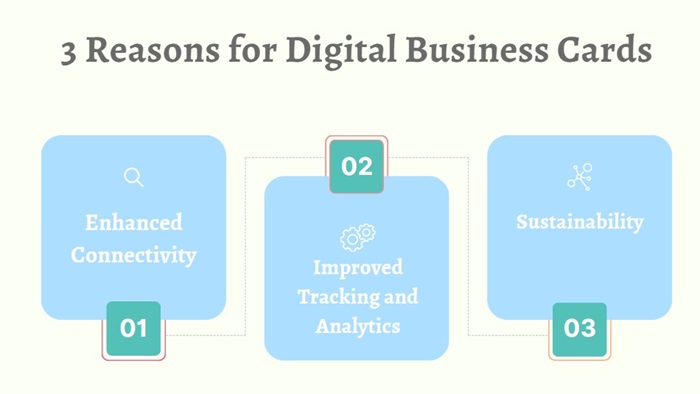
Enhanced Connectivity: Using a digital business card can enhance the connectivity as you can further chat or communicate online before and after the events.
Improved Tracking and Analytics: Digital business cards can be tracked to see how many people are engaging with your content and analyze the scans, clicks lead to conversions.
Sustainability: Digital business cards can be used forever every time you need, and The need for multiple prints can be reduced, thus minimize the paper usage and it’s great for environmental sustainability.
So, physical business cards are still relevant in 2024, but the digital market has continuously increased and more and more people choose to use digital business cards. So what should you choose?
As a Reddit discussion mentioned, “even if overall business cards are less relevant than they've ever been, at the same time they still pop up enough, and there may be cases where having one is a factor in terms of a network connection (where maybe they only follow up or remember you because they have the card in their pocket/wallet).”
So, it’s not to say you have to pick just one: a completely digital business card or a traditional paper business card. The most optimal solution is an integration of both, providing you with all the tangible benefits of digitalization while retaining the timeless charm and effectiveness of traditional networking.
To do this, you only need to create a digital business card on one of the many available online platforms and include a link or a QR code for people to scan.
This ensures you’ve got both bases covered, with your preliminary contact information on your paper card, and for even more details like social media platforms, websites, portfolios, etc. they can scan the QR code or type in the URL to a web browser. You’re not losing anything by keeping an active and updated digital business card, so integrate them into your online profiles and channels to enhance brand awareness and visibility while using your paper cards for in-person meetings.
6. The Future of Business Cards
Assuming that digital business cards are the first evolution of the traditional paper business card, what about the future of the ‘digital’ version? That is none other than AI business cards.
ChatInsight is a robust platform for building and hosting digital AI business cards that can do a lot more than both traditional paper cards and digital business cards. It is easy to create, versatile to share, and available to update in real time.
This is a video that shows how ChatInsight AI business card is different:
7. Summary
Personally speaking, the answer to ‘Are business cards still relevant?’ is quite an easy one. Yes, business cards are still highly relevant in today’s business landscape and we predict it will be for a while.
However, relying solely on traditional business cards for exchanging contact information is outdated. Instead, they should serve as a foundation for further engagement, complemented by digital or AI business cards, such as those offered by ChatInsight.
Integrating an AI business card onto your paper business card is how we see the professional pivoting in the near future, so it’s best to get your foot in the door early to reap the most benefits of leaving that integral & memorable first impression.
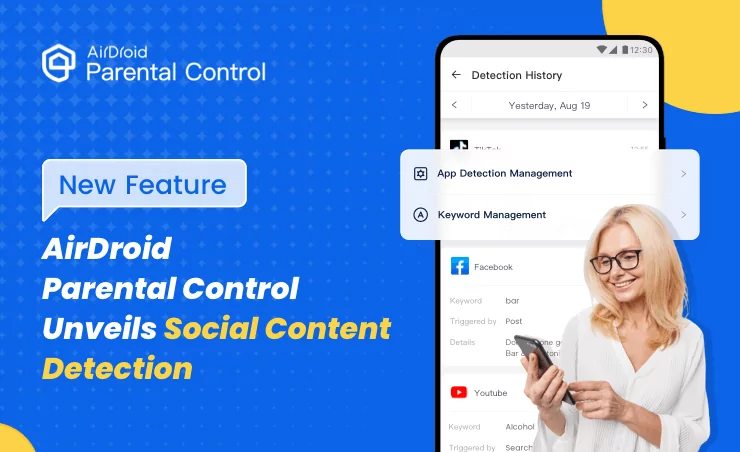
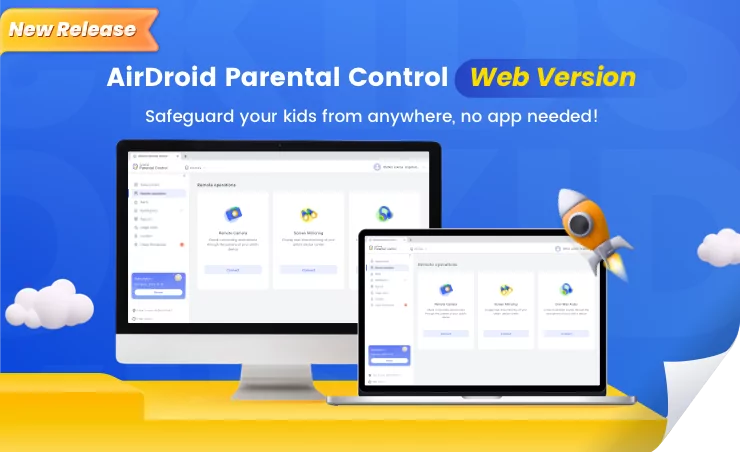
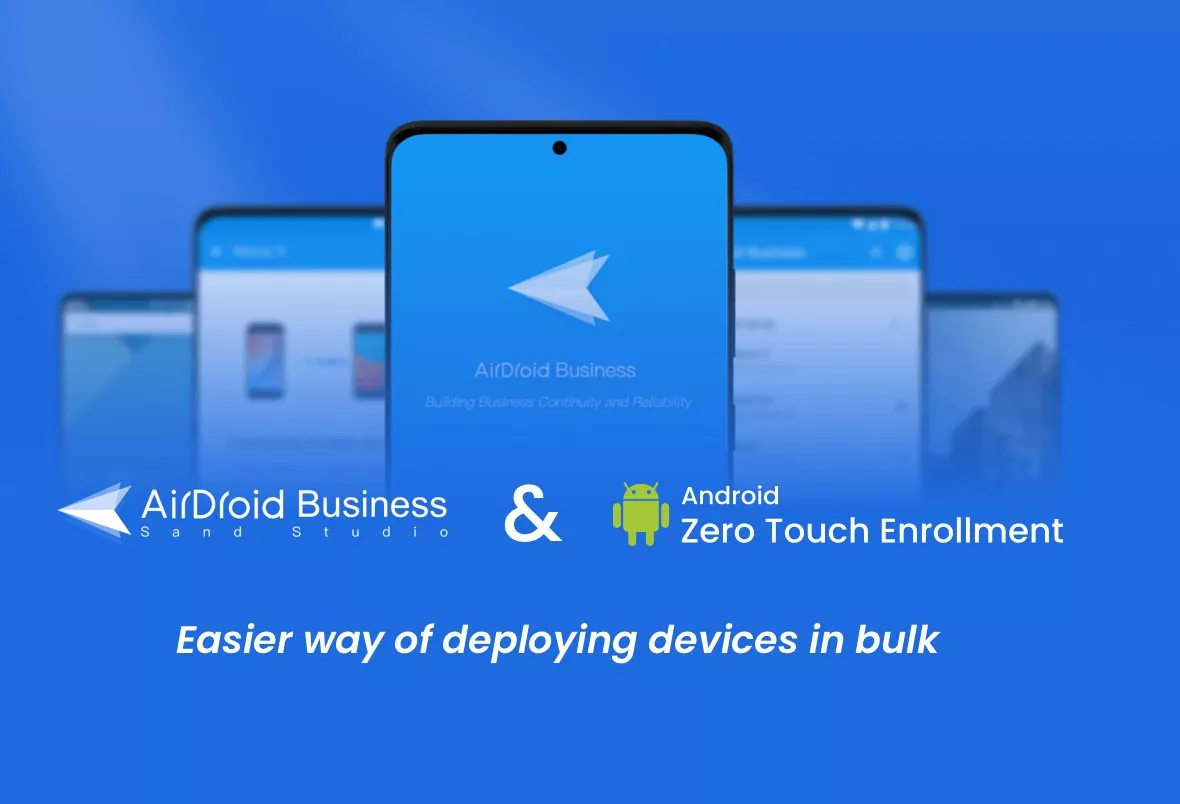
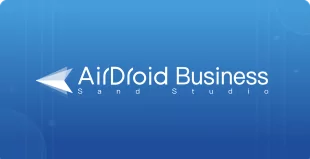
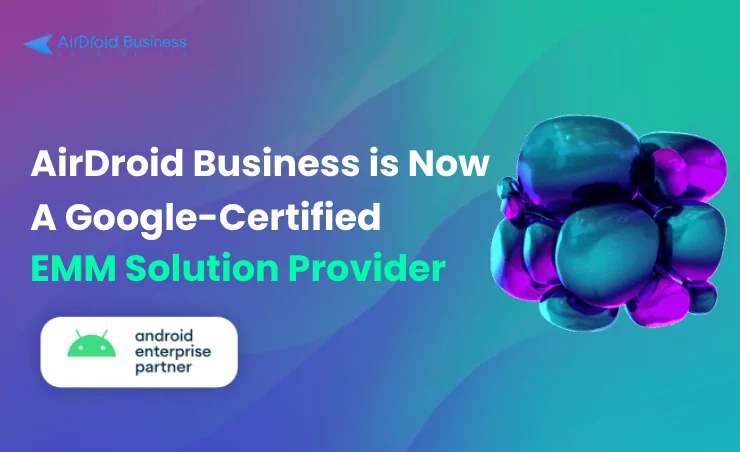



Leave a Reply.